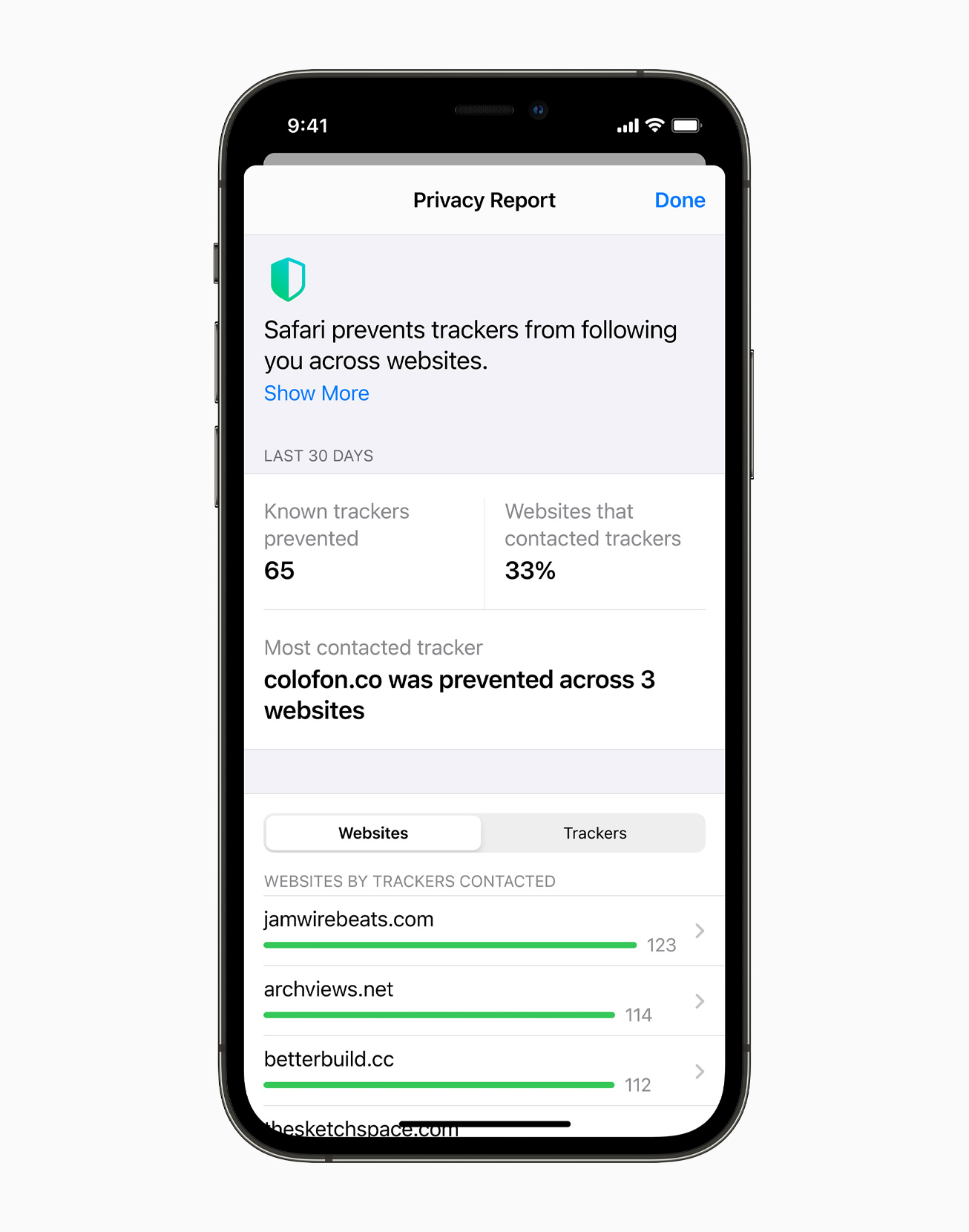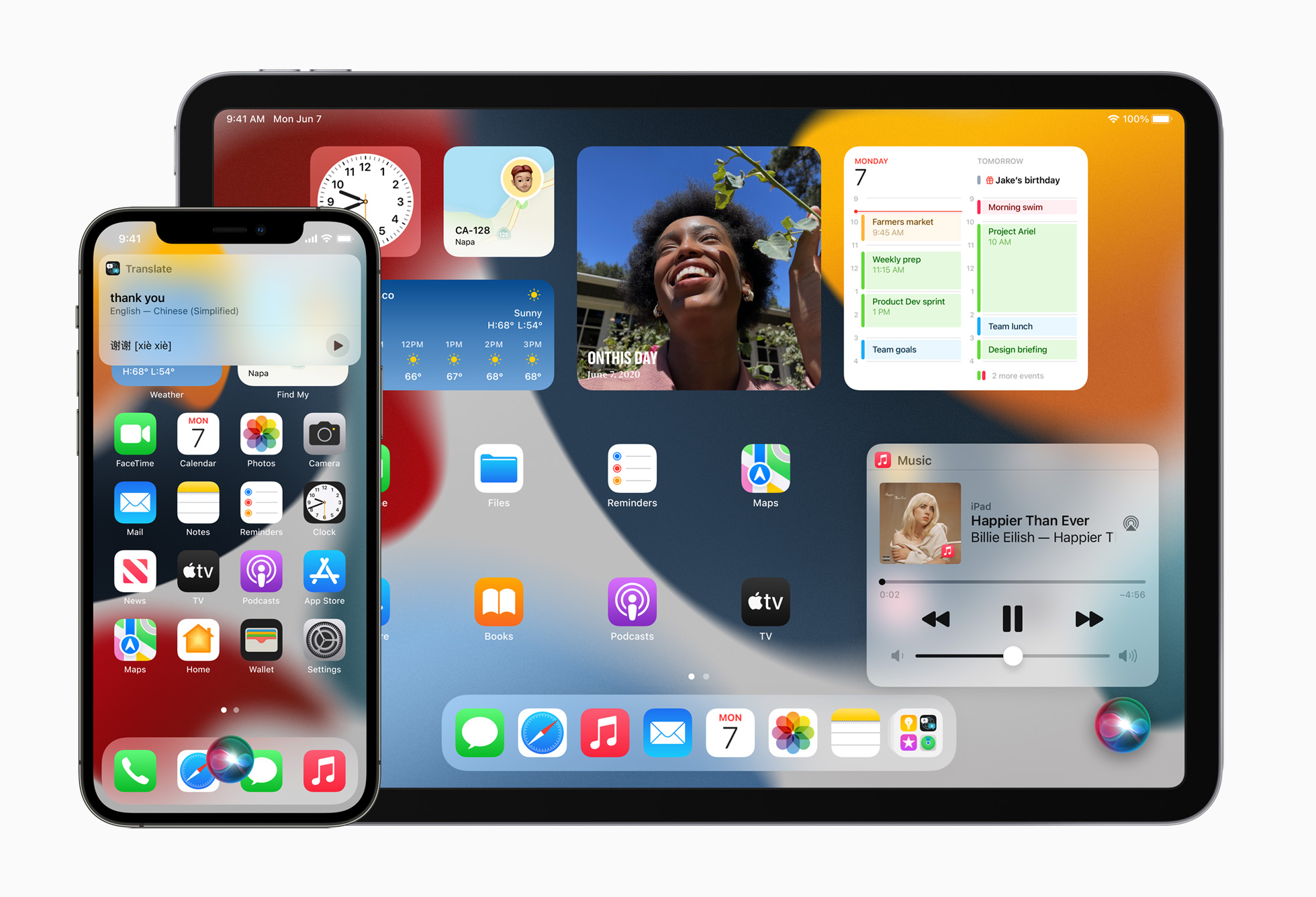One of the major selling points for Apple and its platforms is privacy and security. So it’s no surprise to see the company making improvements in these areas with its next big updates. In this case, Apple is expanding its privacy efforts across its most popular platforms.
Today, during its keynote for this year’s Worldwide Developers Conference, Apple unveiled some major privacy-focused moves for iOS 15, iPadOS 15, macOS 12 Monterey, and watchOS 8. Apple issued a press release following the tidbits it covered during the keynote, digging a bit deeper into what it will be introducing to the public later this year.
It’s important to note that the next major updates to iOS, iPadOS, macOS, and watchOS will arrive later this year, sometime in the fall. When that happens, these new privacy features will be available to the end user.

The end goal here is to give users better tools to manage their information and better tools to control how it’s shared. Think of it, at the very basic level, as an expansion on what Apple has been working on for the last several years. Especially when it comes to App Tracking Transparency feature, which the company launched earlier this year.
Per the release, Craig Federighi weighed in on these changes:
Privacy has been central to our work at Apple from the very beginning. Every year, we push ourselves to develop new technology to help users take more control of their data and make informed decisions about whom they share it with. This year’s updates include innovative features that give users deeper insights and more granular control than ever before.
It starts with email, of all places.
Protecting user data from third parties
Apple has been trying to separate the end user from third-party elements for quite some time. Things really kicked off with the Sign In with Apple feature. That gives users the ability to randomize their email address when they sign into services, making sure that third-party service doesn’t have direct access to their personal email address.
Now, with the Mail app and its new Mail Privacy Protection feature, it goes much further. With this, senders will no longer know when they open an email message, and automatically masks their IP address so that it cannot be linked to other activity, or to determine their location.
For a number of years, Intelligent Tracking Prevention has helped protect Safari users from unwanted tracking by using on-device machine learning to stop trackers while allowing websites to function normally. This year, Intelligent Tracking Prevention is getting even stronger by also hiding the user’s IP address from trackers. This means they can’t utilize the user’s IP address as a unique identifier to connect their activity across websites and build a profile about them.
Check up on your app privacy
There is a new App Privacy Report that Apple will roll out with iOS 15 and iPadOS 15. With this, users will be able to see just how often an app uses the permissions it has been previously granted by the user. This will allow the user to see just when apps like the camera, microphone, maps, location, photos, and more are accessed.
Users can check whether this makes sense to them, and take action by going to the app in Settings if it doesn’t. Users can also find out with whom their data may be shared by seeing all the third-party domains an app is contacting.
Siri requests stay on device

Siri is still one of the major focal points for Apple, one of the company’s most-used features. And now it’s getting an improvement, which actually also makes it faster for queries and actions. Now, Siri will process audio requests right on the device. This happens on either their supported iPhone or iPad.
As far as privacy is concerned, this removes the need for Apple to record audio queries — something the company, and others, got into some hot water not too long ago.
However, handling requests only on-device also means requests will be handled faster. That means getting anything done with Siri, including setting timers, asking a question, launching an app, and other tasks will be handled much faster than before.
iCloud+ beefs up internet privacy
Apple announced iCloud+ today at its keynote. This new feature builds even more privacy and security features into the iCloud service as a whole. However, it does not raise prices. And it starts with an expansion of the aforementioned Sign In with Apple feature.
With the new Hide My email feature as part of iCloud+, users will get to choose to use a randomly generated email address instead of their own personal email address any time they wish to keep that information private. The email messages sent to that random email address with then be automatically forwarded to their real address.
Next is a new feature called Private Relay:
Private Relay is a new internet privacy service that’s built right into iCloud, allowing users to connect to and browse the web in a more secure and private way. When browsing with Safari, Private Relay ensures all traffic leaving a user’s device is encrypted, so no one between the user and the website they are visiting can access and read it, not even Apple or the user’s network provider. All the user’s requests are then sent through two separate internet relays. The first assigns the user an anonymous IP address that maps to their region but not their actual location. The second decrypts the web address they want to visit and forwards them to their destination. This separation of information protects the user’s privacy because no single entity can identify both who a user is and which sites they visit.
And with HomeKit’s Secure Video feature, iCloud+ lets users connect even more cameras at once. And any stored video from those cameras does not count against their iCloud storage capacity.
The other bullet points
And a few extra tidbits from today’s announcement:
- With share current location, users can easily share their current location with an app just once, without giving the developer further access after that session. Developers can customize the share current location button, and integrate it directly into their apps.
- With enhanced Photos limited library access, developers can offer smart functionality — like a recent photos folder for specific albums — even when a user has only granted limited access.
- With secure paste, developers can let users paste from a different app without having access to what was copied until the user takes action to paste it into their app. When developers use secure paste, users will be able to paste without being alerted via the pasteboard transparency notification, helping give them peace of mind.
All of these new privacy features will go live for users later this year when Apple officially launches iOS 15, iPadOS 15, macOS 12 Monterey, and watchOS 8.